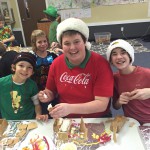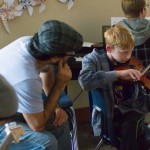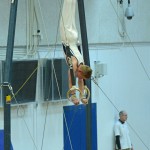 Research: Psychologist Marie Hartwell-Walker’s article on family traditions gives some great insight into the importance that they play in our children’s lives. The holidays are steeped in tradition, with every family’s particular version varying widely. But what they all have in common is that they help mark the passage of time, provide moments for introspection and reflection, identify a child’s place in their community, and most importantly, reinforce a child’s sense of security. She states, “Anything positive, done regularly, puts something important in the child’s internal ‘security bank;’ emotional steadiness that can be drawn on in more difficult times.”
Research: Psychologist Marie Hartwell-Walker’s article on family traditions gives some great insight into the importance that they play in our children’s lives. The holidays are steeped in tradition, with every family’s particular version varying widely. But what they all have in common is that they help mark the passage of time, provide moments for introspection and reflection, identify a child’s place in their community, and most importantly, reinforce a child’s sense of security. She states, “Anything positive, done regularly, puts something important in the child’s internal ‘security bank;’ emotional steadiness that can be drawn on in more difficult times.”Traditions
 Research: Psychologist Marie Hartwell-Walker’s article on family traditions gives some great insight into the importance that they play in our children’s lives. The holidays are steeped in tradition, with every family’s particular version varying widely. But what they all have in common is that they help mark the passage of time, provide moments for introspection and reflection, identify a child’s place in their community, and most importantly, reinforce a child’s sense of security. She states, “Anything positive, done regularly, puts something important in the child’s internal ‘security bank;’ emotional steadiness that can be drawn on in more difficult times.”
Research: Psychologist Marie Hartwell-Walker’s article on family traditions gives some great insight into the importance that they play in our children’s lives. The holidays are steeped in tradition, with every family’s particular version varying widely. But what they all have in common is that they help mark the passage of time, provide moments for introspection and reflection, identify a child’s place in their community, and most importantly, reinforce a child’s sense of security. She states, “Anything positive, done regularly, puts something important in the child’s internal ‘security bank;’ emotional steadiness that can be drawn on in more difficult times.”


